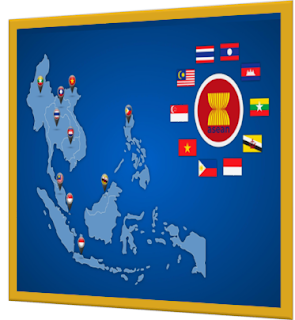European Union(EU):The Paradoxical Alliance
What We Are Going To Discuss:

- Historical Foundations of the European Union
- Recent Initiatives and Developments in the EU
- Global Reactions and Responses to EU Policies
The European Union (EU) originated after World War II, aiming to foster economic cooperation and prevent future conflicts. It began with the establishment of the European Coal and Steel Community (ECSC) in 1951, formed by Belgium, France, Germany, Italy, Luxembourg, and the Netherlands to integrate their coal and steel industries.
In 1957, the Treaty of Rome created the European Economic Community (EEC), promoting a common market. The Merger Treaty in 1965 unified the institutions of the ECSC and EEC. The Single European Act of 1986 aimed to establish a single market by 1992, facilitating the free movement of goods, services, people, and capital.
The Maastricht Treaty in 1993 formally established the EU and introduced the criteria for adopting the Euro. The late 1980s and 1990s saw the implementation of the Schengen Agreement for passport-free travel and the creation of the Cohesion Fund to support less developed regions.
These initiatives laid a robust foundation for political and economic cooperation across Europe, setting the stage for the EU's continued evolution into the 21st century.
While before 2000 EU did the following interactions with other countries:
- Development cooperation
- Making Partnership with other political blocs: It made Bilateral agreements with political blocs like Russia
- Stabilizing Europe
- Euro-Mediterranean Partnership: It includes country in control of Mediterranean coast, for example: Turkey, Israel,etc...
- Humanitarian aid
CFSP (Common Foreign and Security Policy): Established under the Maastricht Treaty, this policy aimed to create a unified approach to foreign policy among EU member states. The EU sought to mediate conflicts and promote peace in different regions, actively participating in diplomacy and peacekeeping operations.
- Trade agreements
2. Recent Intiatives And Developments in the EU?
Economic:
Recent EU economic initiatives include the NextGenerationEU Recovery Plan, the Green Deal Industrial Plan, the European Chips Act, and the Digital Decade 2030 Program, all aiming to boost recovery, sustainability, and technological advancement across member states.
Political:
Recent EU economic initiatives include the NextGenerationEU Recovery Plan, the Green Deal Industrial Plan, the European Chips Act, and the Digital Decade 2030 Program, all aiming to boost recovery, sustainability, and technological advancement across member states.
Social:
Recent EU social initiatives include the European Pillar of Social Rights Action Plan, promoting fair working conditions, gender equality, and social inclusion; the Youth Employment Support initiative; and efforts to enhance mental health and well-being, particularly in response to the pandemic.
3.Global Reactions and Responses to EU policies
Global reactions to EU policies have been diverse, reflecting the EU’s significant role in international politics, trade, and environmental efforts.
1. Trade Policies: The EU's stringent regulations on trade, particularly concerning environmental and labor standards, have sparked mixed responses. While many countries appreciate the EU’s commitment to sustainable practices, others, such as the United States and some developing nations, argue that these policies can create barriers to trade and stifle economic growth, viewing them as forms of protectionism.
2. Sanctions on Russia: The EU’s sanctions against Russia in response to the Ukraine conflict received broad international support, particularly from Western allies, reinforcing collective efforts to isolate Moscow. However, countries with strong ties to Russia have criticized these measures, expressing concerns over their economic impacts.
3. Climate Initiatives: The EU's ambitious climate policies, particularly the European Green Deal, have garnered global attention, often setting standards that other nations aim to follow. Countries participating in international agreements like the Paris Accord view the EU as a leader in climate action, while critics argue that the policies might give the EU an unfair economic advantage.
4. Migration Policies: The EU’s migration and asylum policies have attracted mixed reactions, with some neighboring countries advocating for solidarity and burden-sharing, while others criticize the perceived lack of support for frontline EU countries.
Overall, the EU's policies provoke varied responses that reflect geopolitical interests, economic considerations, and differing values on issues such as human rights and sustainability.

Comments